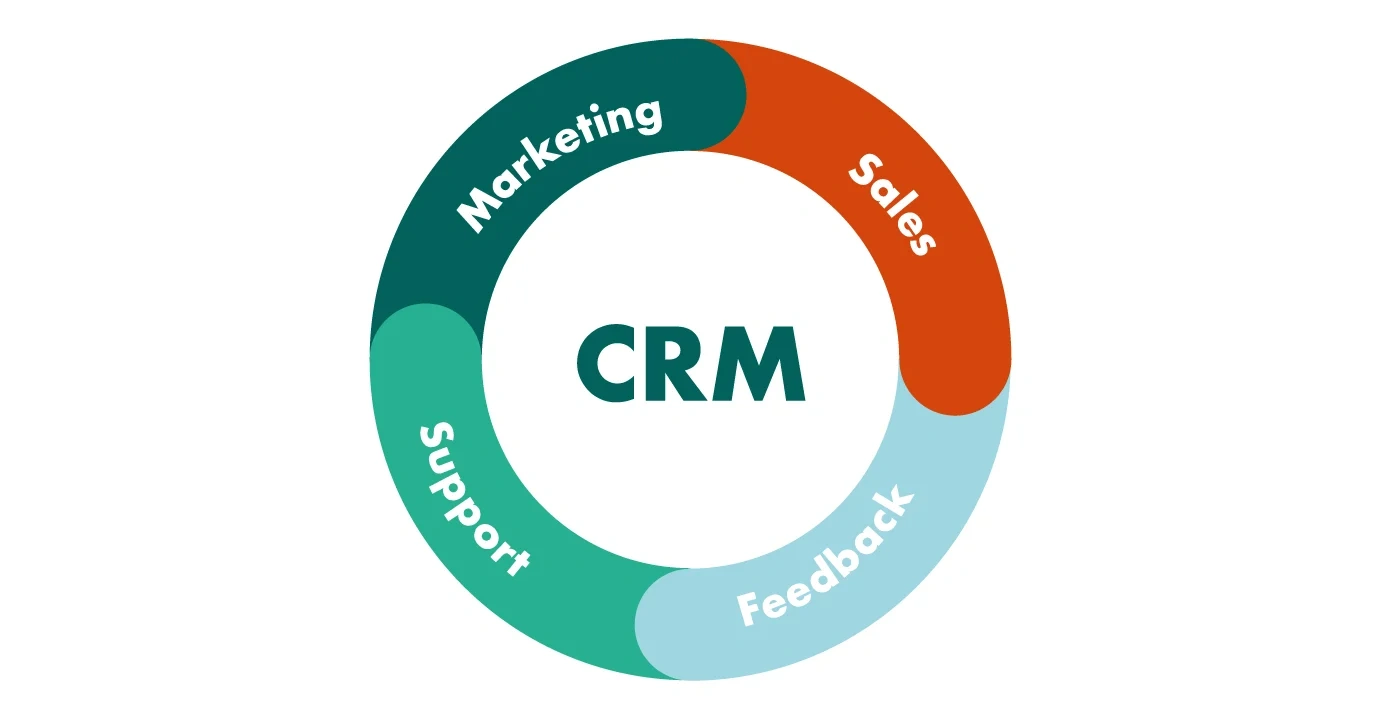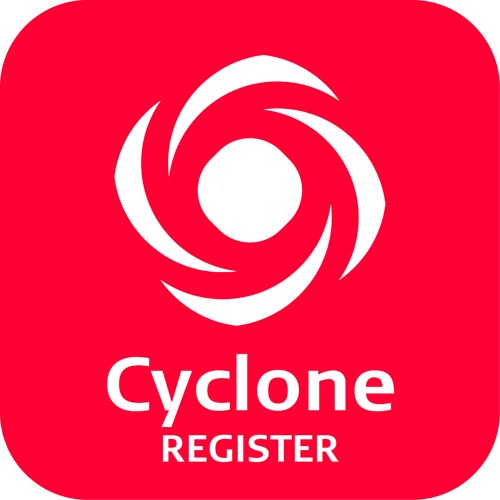
Introduction
In the fast-paced world of business, Customer Relationship Management (CRM) software remains a cornerstone for companies eager to stay ahead of the curve. CRM technology has swiftly advanced from simple contact management systems to robust platforms capable of managing entire customer lifecycles. Today, we stand on the precipice of a new era where the latest trends in CRM software are not just shaping the way businesses operate but revolutionizing the very fabric of customer interaction.
Understanding these trends is paramount for any business that strives to deliver exceptional customer experiences and drive growth through informed, data-driven strategies. In this blog post, we will dissect the most influential trends in CRM technology, detailing how they contribute to the success of businesses and what they herald for the future of customer relations. So, whether you’re a business leader, a sales professional, or just CRM-curious, join us as we navigate the landscape of cutting-edge CRM innovation.
Dive in, as we explore everything from the migration to cloud-powered solutions all the way to the integration of AI and predictive analytics. We’ll reveal the keys to personalizing customer interactions, the secrets behind effective omnichannel support, and how CRM is becoming the nexus for all your automation and data-analysis needs.
Are you ready to unlock the full potential of your CRM software? Let’s get started!
Evolving Landscape of CRM Software
As businesses evolve, so too does the technology they rely upon. CRM software is at the forefront of this technological evolution, continually adapting to meet the ever-changing needs of businesses and their customers.
The Shift to Cloud-Based CRM Solutions
Gone are the days of clunky, on-premise CRM systems that require extensive IT oversight and hefty upfront investments. The cloud has become the new normal, offering scalability, flexibility, and ease of access that businesses of all sizes crave.
- Cost-Effectiveness: Cloud-based CRMs often operate on a subscription model, eliminating large capital expenditures and reducing the cost of maintenance.
- Enhanced Collaboration: With data stored in the cloud, teams can collaborate in real-time, irrespective of physical location, ensuring a unified approach to customer management.
- Automatic Updates: Automatic updates push the latest features and security fixes to users, helping businesses stay current without downtime or additional costs.

The Rise of Mobile CRM
Mobile CRM empowers sales teams with the ultimate tool: access. Immediate access to customer data, sales figures, and analytics from anywhere at any time.
- On-the-Go Access: Sales reps can now enter data, check their schedules, and update customer information directly from their mobile devices.
- Enhanced Responsiveness: The immediacy of mobile CRM enables quicker response times, fostering better customer relationships.
Integration of Artificial Intelligence
Artificial Intelligence is no longer science fiction—it’s a game-changing reality in CRM software. AI enables predictive analytics, automates routine tasks, and provides deeper insights into customer behavior.
- Predictive Sales and Service: AI can forecast sales trends and customer needs, allowing for proactive rather than reactive strategies.
- Personalized Interactions: By analyzing past customer interactions, AI can guide conversations and recommend actions that resonate with individual preferences.
As we continue to witness the evolution of CRM software, it’s important to recognize these trends not as isolated features but as interconnected components of a holistic approach to customer relationship management.
Enhancing Customer Experience with CRM

In the world of CRM, technology serves one supreme purpose: to enhance the customer experience. As expectations soar, CRM software developers are innovating to ensure businesses can deliver personal, seamless, and memorable experiences.
Personalization at the Core of CRM
Consumers today aren’t just buying a product or service; they’re looking for an experience tailored to them. Personalization is paramount in building strong, loyal relationships with customers, and CRM plays an instrumental role in making that happen.
- Tailoring the User Experience: By harnessing the data within a CRM, businesses can customize interactions, offers, and communications to match the unique preferences and history of each customer.
- Segmentation and Targeting: Advanced segmentation capabilities enable targeted marketing campaigns that resonate with specific audience groups, leading to higher conversion rates.
Omnichannel Customer Support
Customers interact with businesses through various platforms ? email, social media, chat, and more. An omnichannel CRM strategy ensures consistency and quality of service across all these touchpoints.
- Unified Customer View: A CRM system that delivers an omnichannel experience provides a 360-degree view of the customer, enabling teams to provide support that is informed by all prior interactions.
- Reducing Customer Effort: By offering support over multiple channels and remembering past interactions, businesses can reduce the effort customers need to resolve their queries, boosting satisfaction.
Customer experience is the battleground where businesses win or lose. By leveraging CRM software that focuses on personalization and omnichannel support, companies can consistently deliver experiences that not only meet but exceed customer expectations.
CRM and Automation ? A Productivity Boost
CRM systems have become the driving force behind streamlining processes and enhancing productivity within organizations. The infusion of automation within CRM not only minimizes manual effort but also paves the way for more strategic and impactful use of human resources.

Workflow Automation with CRM Systems
Automation is the secret sauce that makes modern CRM systems so powerful. By automating repetitive tasks, businesses can free up time for their teams to focus on more complex, valuable work that requires a human touch.
- Task Management: Automating tasks such as data entry, follow-up emails, and lead assignment ensures efficiency and consistency in the sales process.
- Sales Process Streamlining: Automated workflows guide sales reps through the stages of a deal, providing them with the tools and information needed at each step to optimize the chances of conversion.
CRM and Marketing Automation Convergence
CRM and marketing automation are no longer distinct entities but are converging into a unified force that provides end-to-end management of the customer journey.
- Lead Nurturing: With integrated CRM and marketing automation, businesses can nurture leads throughout the entire sales funnel with personalized messaging and automatic follow-ups.
- Campaign Tracking: The combination of CRM and marketing tools allows for advanced tracking and analysis, enabling marketers to fine-tune campaigns for optimal performance.
By harnessing the power of automation, CRM software turns routine tasks into strategic assets, increasing not only the productivity of teams but also the effectiveness of customer acquisition and retention efforts.
Data-Driven Decisions with CRM Analytics
The modern business landscape is underpinned by data. CRM analytics provide crucial insights that inform tactical and strategic decisions, enhancing customer relationships and driving business growth. By capitalizing on the rich data within CRM software, businesses can uncover trends and patterns that would otherwise remain hidden.

Advanced Analytics and Reporting Features
CRM systems have evolved to include sophisticated analytics and reporting features that can turn data into a competitive advantage.
- Customer Behavior Insights: Utilizing data analytics, CRM software can reveal key behaviors and preferences of customers, allowing businesses to adapt their strategies for maximum impact.
- Sales Forecasting: Predictive analytics can project future sales trends, empowering businesses to manage inventory, resources, and expectations more effectively.
The Importance of Accurate Data in CRM
The insights provided by CRM analytics are only as good as the data they’re based on. Ensuring data accuracy is a critical component of effective CRM use.
- Data Cleansing and Duplication: Regular maintenance routines can help cleanse data of inaccuracies and prevent duplication, ensuring the reliability of reports and analytics.
- Data Entry Standards: Establishing and enforcing data entry standards minimizes errors and maintains the integrity of the CRM database.
By leveraging the power of CRM analytics, businesses can gain a deeper understanding of their customers and market dynamics. These insights drive proactive decisions, reduce risk, and uncover opportunities that can be harnessed for business growth.
Security and Privacy Trends in CRM Software
In an age where data breaches are commonplace and customer data privacy is under rigorous scrutiny, the significance of security and privacy in CRM software has never been greater. Providing robust security measures and privacy controls is not just a feature—it’s a mandate for CRM providers aiming to earn and maintain the trust of businesses and their customers.

Enhancing Data Security in CRM
A breach of customer data can be catastrophic, not only in financial terms but also in terms of a business’s reputation. CRM software developers are continuously fortifying their systems to protect sensitive information.
- Advanced Encryption: State-of-the-art encryption methods ensure that data stored in CRM databases remains secure, even in the event of unauthorized access attempts.
- Regular Security Audits: Regularly scheduled security audits can identify potential vulnerabilities, allowing them to be addressed before they can be exploited.
CRM’s Role in Privacy Management
With regulations like the GDPR and CCPA shaping how businesses handle customer data, CRM software plays a pivotal role in compliance and privacy management.
- Consent Management: CRM systems allow businesses to track and manage customer consent, ensuring that communications and data processing align with individual preferences and legal requirements.
- Data Accessibility and Portability: CRMs facilitate the fulfillment of customer data requests, including the right to access their data and the right to data portability.
Ensuring data security and respecting customer privacy is not merely about regulatory compliance; it’s about building a foundation of trust. A CRM system that provides top-notch security and privacy features is indispensable in this environment.
CRM Software Customization and Flexibility
Today’s businesses demand CRM solutions that can be molded to fit their unique needs and processes. The one-size-fits-all approach is fading into obsolescence as customization and flexibility become the cornerstones of modern CRM software design.

The Growing Demand for Custom CRM Solutions
Customization allows businesses to adapt CRM software to their workflows rather than the other way around, empowering them to use the software to its full potential.
- Industry-Specific Features: Many CRM providers now offer solutions specifically tailored for vertical markets, incorporating features that address unique challenges and opportunities.
- Modular Design: Modular CRMs enable businesses to select and assemble the components they need, much like picking apps for a smartphone.
Flexible Pricing Models for CRM Services
The economic landscape is rapidly changing, and CRM providers are responding with pricing models that accommodate a wider range of business realities.
- Pay-as-You-Go: For businesses seeking to avoid long-term commitments, some CRM providers offer pay-as-you-go plans that allow for scalability, whether scaling up or down.
- Tiered Packages: CRM vendors offer a variety of packages, each tier providing a different level of features and scalability, so businesses can start with what they need and add more as they grow.
The twin pillars of customization and flexibility not only provide businesses with tools that resonate with their specific needs but also foster an environment where CRM software can evolve alongside the businesses it serves.
The Future of CRM Software
As we peer into the horizon, the future of CRM software is vibrant and brimming with possibilities. Predictive models are honing the prescience of businesses, allowing them to anticipate and craft customer journeys with remarkable precision. The potential integration of CRM with cutting-edge technologies like the Internet of Things (IoT), virtual and augmented reality (VR/AR), and blockchain heralds a new dawn for customer engagement and security.
Businesses that leverage these advancements in CRM software are poised to not just respond to market changes but to anticipate them, shaping their own futures in the process.
Conclusion
Embarking on a journey through the latest trends in CRM software offers a glimpse into the transformative power of technology in the realm of customer relationship management. From cloud-based innovations and the mobility of CRM to the sophistication of AI and analytics, businesses have at their disposal an unprecedented array of tools.
Yet, amidst this technological abundance, the key takeaway is that CRM software must always serve the ultimate goal of enhancing the customer experience—everything else is ancillary.
Call to Action
The dynamic realm of CRM is a testament to the potential that lies within a strategic approach to customer relationships. Whether you’re seeking to innovate your current processes or adopt CRM software for the first time, we invite you to join the vanguard of businesses that are redefining what it means to engage with customers.




